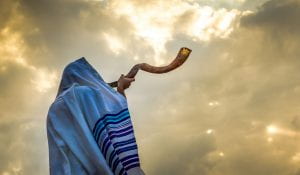Written By: Miranda Lukatch, Editor, Vincentian Studies Institute

The winter quarter months of January, February, and March often seem interminable. Joyful holiday events are over, the optimism with which we’ve greeted the new year may be waning, and our ability to keep our New Year’s resolutions may lessen with every passing day. Spring break can seem far away as we stare down the maw of winter.
For me, the worst aspect of this season is feeling that my productivity is impaired while knowing that there’s so much yet to accomplish. The antidote is finding that I’m not alone and that even immensely dynamic people feel the same way. I’m accustomed to hearing stories about this from those around me—but it may surprise you, as it did me, to know that people from our Vincentian past knew this feeling well. In an 1835 letter, Frédéric Ozanam, the founder of the Society of Saint Vincent de Paul, wrote: “I feel inspiration withdrawing from me as it were in warning…. I cannot will, I cannot do, and I feel the weight of daily neglected responsibility gathering on my head.… I fell into a state of languor from which I cannot rouse myself. Study now fatigues me …. I can no longer write. Strength is not in me. I am blown about by every wind of my imagination.” [1] Reading these words, I think it’s no coincidence that this letter was dated in February!
How are we to cope with feelings like this? Do the founders of our Vincentian Family have any advice to offer?
Although he didn’t address the winter doldrums specifically, Vincent de Paul once offered Louise de Marillac wise counsel when she was experiencing profound restlessness. From the perspective of their shared faith, he encouraged her to bear ambiguity and dissatisfaction patiently with grace, saying, “Try to live content among your reasons for discontent and always honor the inactivity and unknown condition of the Son of God. That is your center and what He asks of you for the present and for the future, forever.” [2] Although these words were written about a particular situation (Louise was worrying over finding her vocation), they work for our scenario as well. In modern terms, we need to accept our feelings of negativity. Denying them only makes things worse; it makes us fight against ourselves. Realizing that these feelings have a purpose—even if we don’t currently understand it—is also helpful. Vincent was encouraging Louise to be at peace with dormancy, recognizing that it might be a part of the development of something. With that in mind, we can see the languor of winter as a necessary period of quiet preparation, anticipating the refreshed spirit and renewed activity of spring.
Reflection Questions:
If you’re experiencing seasonal discontent, can you identify any specific causes? Can these tell you anything about what might be developing within you? To put it another way, how might your winter be laying a positive foundation for your coming spring?
Reflection by: Miranda Lukatch, Editor, Vincentian Studies Institute
[1] Frederick J. Easterly, C.M., “Frédérick Ozanam, A Layman For Now,” Vincentian Heritage 4:2 (1983): 163. Available online at: https://via.library.depaul.edu/vhj/vol4/iss2/4/.
[2] Letter 29, “To Saint Louise,” [between 1626 and May 1629], CCD, 1:54. Available online at: https://via.library.depaul.edu/vincentian_ebooks/25/.


